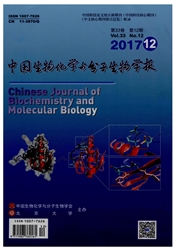

 中文摘要:
中文摘要:
DNA甲基化是重要的表观遗传修饰,主要发生在DNA的CpG岛.DNA的甲基化通过DNA甲基转移酶(DNA methyltransferases,DNMTs)完成.DNA甲基化参与了细胞分化、基因组稳定性、X染色体失活、基因印记等多种细胞生物学过程.单基因水平及基因组范围内的DNA甲基化改变在肿瘤发生发展中亦发挥重要作用.抑癌基因的异常甲基化引起的表达抑制,可导致肿瘤细胞的增殖失控和侵袭转移,并参与肿瘤组织的血管生成过程.在许多肿瘤的研究中都发现了基因组整体DNA低甲基化所导致的染色体不稳定性.本文从DNA的异常高甲基化和低甲基化两方面论述了DNA甲基化在细胞恶变发生发展过程中的改变及其影响,并阐述了DNA甲基化改变在肿瘤诊断和治疗中的作用.
 英文摘要:
英文摘要:
DNA methylation plays a crucial role in various cellular functions such as differentiation,genomic stability,X-inactivation and imprinting.DNA methylation is mediated by DNA methyltransferases(DNMTs),including DNMT1,DNMT3a and DNMT3b.Aberrent DNA methylation has been observed in many types of cancer.Promoter hypermethylation causes silencing of key tumor supperssor genes,and consequently leads to cell proliferation,angiogenesis,invasion and metastasis.Genome-wide hypomethylation contributes to genomic instability,which is an important feature of various malignancies.This review examined alteration in DNA methylation and the consequent effect on gene expression in cancer,and discussed the use of DNA methylation inhibitors in cancer therapy.
 关于梁静:
关于梁静:
 同期刊论文项目
同期刊论文项目
 同项目期刊论文
同项目期刊论文
 期刊信息
期刊信息
